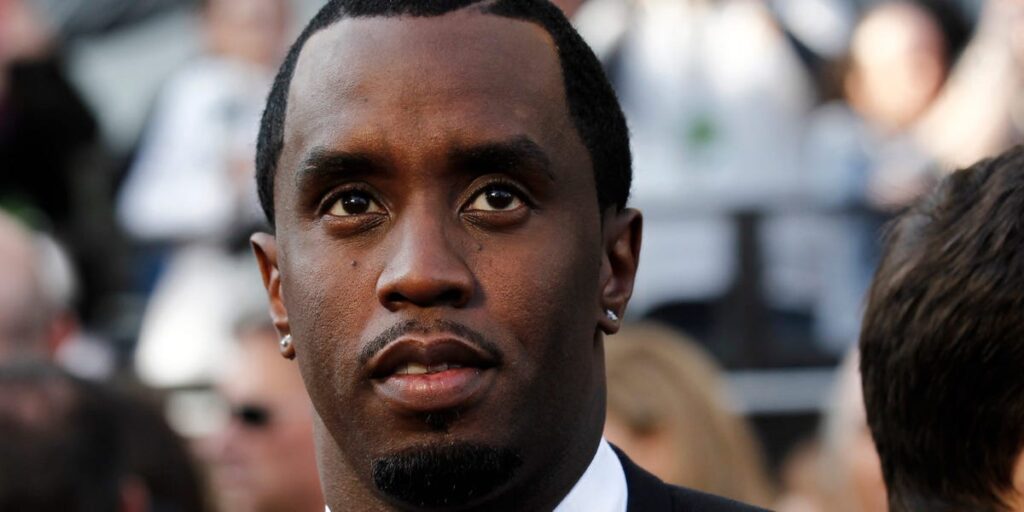- In court on Tuesday, defense lawyers said a raid on Sean ‘Diddy’ Combs’ jail cell was improper.
- Photos of Combs’ handwritten to-do list should never have been given to prosecutors, a lawyer said.
- The lawyer said he may now seek dismissal of the case or recusal of the entire prosecution team.
Lawyers for Sean “Diddy” Combs warned they may seek to have his sex-trafficking case dismissed because prosecutors caught a glimpse of a handwritten “to-do list” the rap mogul kept in his Brooklyn jail cell.
The to-do list— jotted by Combs on a white legal pad, to memorialize jailhouse conversations with his attorneys — was secretly photographed and then returned to his cell by Bureau of Prisons officials during a late October raid, a lawyer for Combs alleged during a hearing in federal court in Manhattan on Tuesday.
News that prosecutors had gained possession of the writings was first revealed this week.
The writing on 19 pages from the list, “are in the heartland of attorney-client material,” attorney Marc Agnifilo told US District Court Judge Arun Subramanian, his voice angry, as Combs sat to his left, nodding “yes.”
Before them on the defense table was a four-inch stack of folders and paperwork from Combs’ cell, including the actual to-do list, Agnifilo told the judge. The lawyer waved some of the papers in the air as he spoke.
“The government now knows potential defense witnesses for a May 5 trial,” well in advance of when witness names must be shared, the lawyer complained. “It’s giving them an insight into the defense, and they should not have it.”
During their turn to speak, prosecutors presented a far different description of the 19 pages, alleging instead that they are evidence of Combs’ ongoing attempts to use his cash and influence to obstruct justice.
There were two highly incriminating errands among Combs’ to-do list tasks, Assistant US Attorney Mary Slavik told the judge at Tuesday’s hearing — and neither are protected by attorney-client privilege, she said.
One “relates to the defendant paying a potential witness to, quote, ‘find dirt’ on a potential victim,” Slavik alleged.
The second involves Combs’ plan for “following up with a paralegal to determine if a witness was paid off or not,” she said.
Indeed, if these two excerpts do somehow relate to attorney-client communications, “they would fall under the crime-fraud exemption,” Slavik added. By law, attorney-client privilege does not protect communications involving criminal activity.
These to-do list excerpts are now key evidence in an ongoing grand jury investigation into possible obstruction of justice charges, and could become part of a potential new indictment, she said.
“I think it’s clear that this material is outside the defense defending a criminal case,” the prosecutor told the judge of the to-do list excerpts.
Combs built a multi-million-dollar fashion and recording empire and was one of the first, and richest, hip-hip entrepreneurs. He has been held without bail since mid-September, when he was arrested and accused of a decades-long pattern of physical and sexual violence against multiple victims, including during elaborate parties called “freak-offs.”
At the close of the hearing, the judge asked both sides to prepare written arguments explaining why the 19 pages are, or are not, privileged.
He instructed the prosecution team to meanwhile delete the photographs of the 19 pages from their records, at least until a privilege determination can be made.
The judge also told the prosecution team to ask prison officials to retain copies of the surveillance video from the search of Combs’ cell.
Tuesday’s hearing revealed new details of the raid itself.
The BOP conducted the raid on Brooklyn’s Metropolitan Detention Center without alerting prosecutors beforehand, in order to recover contraband relating to their own investigation into Combs and others at the jail, Slavik told the judge.
Prison officials photographed, then replaced, Combs’ paperwork. After the sweep, the officials followed the required procedure for handling potentially sensitive, attorney-client material.
Photographs were given first to a so-called filter team, a separate group of US attorneys not connected to the Combs prosecution. The filter team then extracted all attorney-client material before passing the remaining photographs along to the Combs prosecutors, Slavik told the judge.
Combs is due back in court on Friday, when his defense team will make a third argument for bail. Prosecutors cannot refer to Combs’ disputed to-do list tasks in opposing bail, the judge ordered.
Read the full article here


